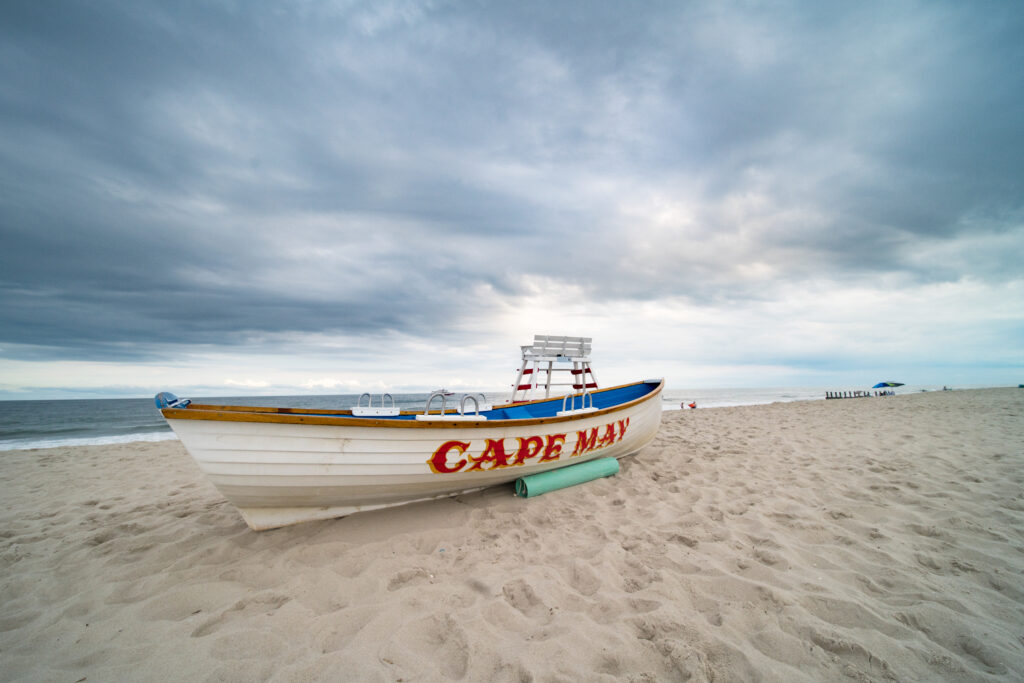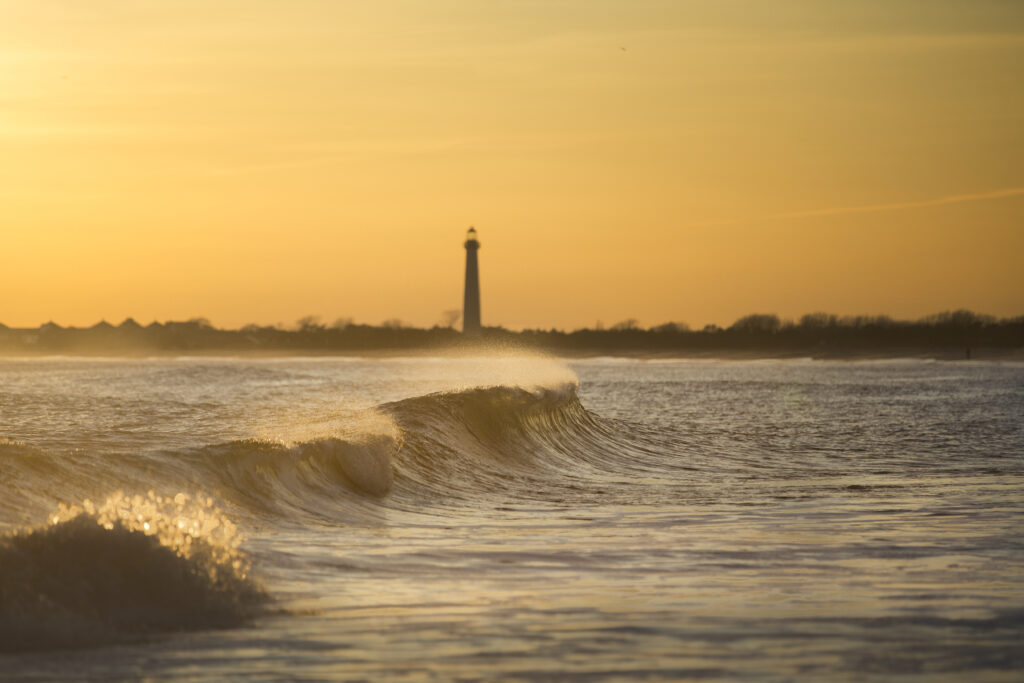The following is the first in a recurring series of Q&As with NJCRC partners highlighting their work, perspectives on coastal resilience issues, and views on how the collaborative can help. We’re pleased to start this series with Dr. Edward J. Mahaney, Jr., former co-chair and current member of the NJCRC Board of Directors, former longtime mayor of Cape May City, and owner of Mahaney Consulting.

Can you tell us about your background and how you first became interested in coastal resilience issues?
Having grown up in the Philadelphia suburbs, my family had a tradition of vacationing at the Cape May County shore towns. During my 45-year professional career in education, I served as special education teacher and administrator in the public and private school systems, at the collegiate level, and at the state Department of Education level. These experiences allowed me to utilize the skills that I acquired while earning three degrees at Temple University: a bachelor of arts in economics, master of education in special education, and doctor of education in special education administration.
During my professional career, I was able to purchase a summer home in the City of Cape May that gradually transitioned to being my permanent residence. Concurrently, I became involved in city government by serving as mayor and councilman for 16.5 years and member and chairman of the City Planning Board for 21 years. In these governmental positions, I began to understand and appreciate the beauty, value, and sensitivity of our magnificent Cape May City environmental assets. Such assets must be protected and enhanced as the major basis of our local economy, our individual livelihoods, and balance of nature in our environment.
What kind of work do you do at Mahaney Consulting?
Following my governmental service in Cape May City, I founded Mahaney Consulting in 2017 for the purposes of focusing on sustainability and resiliency initiatives; government and residential real estate development; planning, zoning, and permitting projects; community development; and economic development. Service delivery is devoted to the public, private, and non-profit sectors including municipalities, counties, authorities, schools, higher education, corporations, and charitable organizations in the Mid-Atlantic Region. Most of my work activities center around preserving and securing environmentally sensitive lands, flooding solutions, and educational presentations regarding resilience and sustainability. I am a Certified Floodplain Manager, and benefit significantly from the ongoing webinars and conferences sponsored by NJAFM and ASFPM.

How does your organization’s mission and the needs of Cape May connect with the NJCRC?
These three entities are vitally interdependent as they collaboratively pursue the progress necessary for sustainability and coastal resilience in New Jersey. Keyed by ongoing communication and the sharing of science-based research as well as the learning experiences and outcomes of groundbreaking projects, each of these three entities contribute to the research and information bases of the NJCRC while also benefitting from the cutting-edge technology and advances developed by the plethora of NJCRC partners in a collaborative setting.
How has being a member of the NJCRC benefited you and your work?
When the NJDEP initiated the NJCRC with initial meetings in 2016, I realized immediately that coastal communities throughout New Jersey would benefit immensely from the technical assistance provided by an unified and motivated consortium of state and private research universities, non-profit and for-profit groups, national estuary programs and reserves, advocacy groups, state and federal agencies, and regional planning groups. At that time, coastal communities were completing recovery from Superstorm Sandy and subsequent major storms, and they were desperately looking for comprehensive and coordinated resources to plan, implement, and achieve resilience goals. During the past nine years, the NJCRC and its partners have integrated with numerous municipalities and counties to initiate and completed local and regional strategic projects that have achieved hazard mitigation, sustainability, and demonstrated progress toward resilience.
How has the NJCRC supported coastal communities like Cape May?
As with most small coastal towns throughout New Jersey, Cape May City does not have the staffing, consulting, and financial resources internally to address and resolve resiliency issues, especially major coastal storms including hurricanes, tropical storms, nor’easters, flooding, and increasing and more intensive rainfall. When faced with a natural disaster, Cape May and other coastal communities depend on county, state, and federal resources and assistance to recover and restore essential town functions and activities as quickly as possible. However, there always has been a gap in providing small coastal towns with the necessary technical assistance to plan, identify financial resources, and implement strategic plans to mitigate the negative effects of future natural disasters. Over the last nine years, the NJCRC has progressively built a collaborative partnership with local municipalities to fill this gap. The mission of the NJCRC has always been focused on the resilience needs of coastal communities.
What is your favorite place on the New Jersey coast and why?

The City of Cape May has been my favorite place in New Jersey for my entire adult life, and that is why I permanently relocated here many years ago. The major assets are the panorama of sensitive environmental assets and the small-town community culture. Surrounded by three bodies of water and nautically situated 20 miles at sea, our town offers mostly pleasant weather year-round in which we can explore and enjoy our Atlantic Ocean and Delaware Bay beaches, the harbor and canal areas with their many creeks and ponds, the salt marshes, restored wildlife sanctuaries with their indigenous species of plants, flowers, birds, and marine life, and the sportfishing opportunities.
The residents take great pride in our National Historic Landmark District town with its amazing architecture, but, just as importantly, the welcoming spirit towards our year-round tourism industry. Our residents are noted for our commitment to looking out for their neighbors and participating in community events, organizations, and committees to benefit the entire town. The character, culture, and values of Cape May citizens are the underpinning of our individual and collective resilience and sustainability efforts.